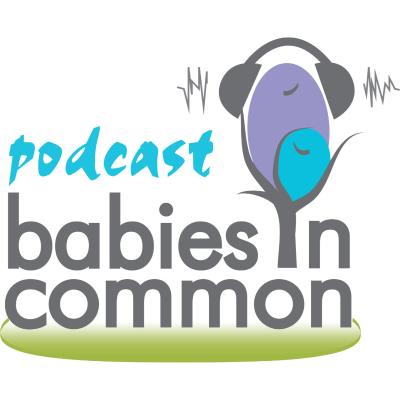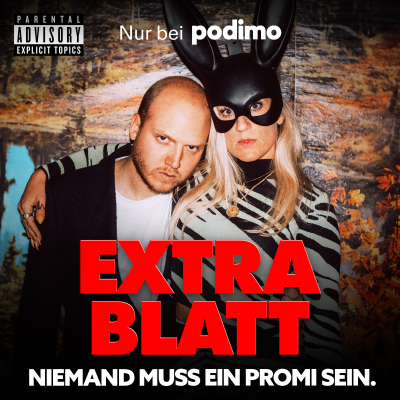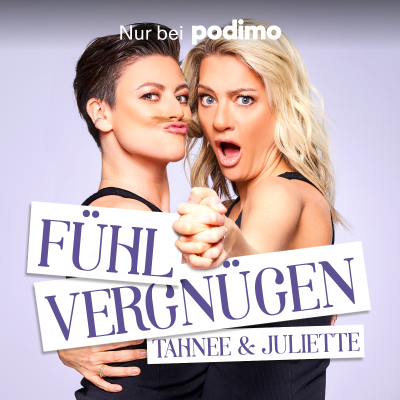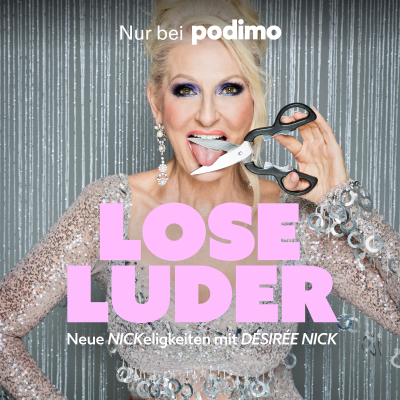
Babies in Common
Englisch
Kostenlos bei Podimo
Kostenlos hören bei Podimo
Starte jetzt und verbinde dich mit deinen Lieblingspodcaster*innen
- Vertraut von über 1 Mio. deutschen Hörer*innen
- Über 1.000 lokale Podcasts und Shows – nur bei Podimo
- Keine Zahlung nötig
Mehr Babies in Common
Interactive discussions with professionals and parents/parents-to-be about pregnancy, birth, feeding, babies and parenting, and hey--wearing pants isn't necessary!
Alle Folgen
70 FolgenChanges in Birth Over 25 Years: Consent, Racism & Doulas with Ananda Lowe
On today’s show we will be discussing how birth has changed over the last 25 years. Our guest today is Ananda Lowe, a long-time birth doula in Massachusetts who will share what she has seen and heard. Ananda has been part of the Boston/New England and even national birth scene for a long time--since 1995. She is co-author of The Doula Guide to Birth: Secrets Every Pregnant Woman Should Know, she’s a Lamaze-trained childbirth educator, as well as a Certified Lactation Counselor, and former Licensed Massage Therapist specializing in pregnancy. After many years of supporting families, she became a new mother in 2010. During this episode, we discuss the following: * how Ananda came to become a birth doula * the history of informed consent and informed refusal in birth and a better way for care providers to offer informed consent and informed refusal * having her first baby at the age of 40 * being vulnerable and the concept of coercion during birth * taking ownership of anger about one’s birth experience * how for decades we have known there are health disparities and that racism is responsible * the importance of listening to and reading birth stories * the rise of inductions and Cesarean births over the last 25 years and why this isn’t a good thing * how “intervention begets intervention” and our obsession with technology * COVID restrictions and why having even a virtual doula is helpful Resources: https://www.bostondoulacircle.com/ [https://www.bostondoulacircle.com/] https://www.wbur.org/news/2018/05/11/doula-culture-of-consent [https://www.wbur.org/news/2018/05/11/doula-culture-of-consent] https://www.yougoodsis.co/ [https://www.yougoodsis.co/]
Infertility Myths with Kate Rosenkranz
On today’s show we will be discussing and busting some infertility myths with Kate Rosenkranz, a dear friend of Melissa’s who had an infertility journey before a successful pregnancy. Kate had to undergo a complicated surgery and one round of in-vitro fertilization and two failed transfers before conceiving her son on transfer number 3. She later conceived her daughter on the first transfer. Kate shares her story and what she learned from her journey (and what she has learned from many others who have gone through infertility). Myths we discuss in this episode: Myth 1: If you can’t get pregnant, you can quote “just do IVF”. Why is that a problematic way of thinking? Myth 2 & 3. The famous “It’s all in your head! Why don’t you relax and take a vacation! Then you’ll get pregnant!” followed by it’s evil twin the infuriating “Don’t worry so much, it just takes time. You’ll get pregnant if you’re just patient.” Myth 4: Infertility is a woman’s problem. Myth 5: But you’re so young. You have plenty of time to get pregnant.” We also discuss what things that family and friends can do (and what NOT to do or say) when you know someone who is on an infertility journey. Visit www.resolve.org for compassionate support and information about infertility. RESOLVE is a national non-profit organization providing free or low cost support and educational programs in local communities to meet the needs of women and men diagnosed with infertility.
Nurse Practitioners as Part of Your OB/GYN Care Team with Ketura'h Edwards-Robinson, MSN, WHNP-BC, AGNP-C, SANE-MA
Today we speak with Ketura’h Edwards-Robinson, a native Bostonian who is currently working in her home city as a Nurse Practitioner, primarily in the area of Women’s Health. One thing that makes Ketura’h special is that in the past year, Ketura’h trained to become a birth doula and is now serving clients in her community with Accompany Doula Care, a local doula agency that has developed a model of care where their doulas are reimbursed by the client’s health insurance, which is helping address health disparities. Ketura’h has served as a women's health nurse practitioner at the Suffolk county jail, a Primary Care clinical care manager, OB-GYN nurse and even a pediatric nurse. She also has experience providing acute treatment for patients experiencing substance use disorders and is a Sexual Assault Nurse Examiner for the Massachusetts Department of Public Health. During today's conversation, Ketura'h explains what a nurse practitioner is and how their expertise and scope of practice differs from other clinicians and she describes her path to becoming an NP. She talks about what she loves about being a nurse practitioner and what aspects of OB/GYN care she does and doesn't do. We talked with Ketura'h about her her training in breastfeeding and infant feeding and what led her to become a birth doula (and how she manages being a clinician while attending births as a doula). We end our discussion with her providing listeners with several final words of wisdom for pregnant listeners.
Artificial Insemination with Marianne Pelletier, CNM
Although today’s topic is not only utilized by LGBTQIA families, they are one of the biggest groups that do! This episode was recorded at the start of June, which is Pride Month, and with this episode we are celebrating just one of the many different ways to make a family. Our guest today is Certified Nurse Midwife Marianne Pelletier, who was inspired to enter birth work after the birth of her own children. After becoming a nurse, she worked for 12 years in labor & delivery in both a hospital and a birth center. Then in 1998 she completed her education as a Certified Nurse-Midwife (CNM) at the University of Medicine and Dentistry of New Jersey. Since then, she has worked in a variety of settings, including a free standing birth center, a small community hospital, and large teaching hospitals, providing holistic midwifery and gynecological care for people of all ages. After more than twenty three years of practice, she felt a calling to return to a more personalized, intimate form of midwifery care and began attending births at home. In 2020, Marianne officially partnered with certified professional midwife Rachel Blessington to co-found Embrace Midwifery, providing full spectrum midwifery care, planned home birth and holistic gynecology care throughout Central Massachusetts, with offices in Worcester, Fitchburg and Dudley. In this episode, we discuss the definition of Artificial insemination (AI) and the two types of AI, Intracervical insemination (ICI) and Intrauterine insemination (IUI). Marianne provides this service in her beautiful home office in Fitchburg for Embrace Midwifery. We discuss with Marianne why someone would elect to come to her for this procedure instead of a fertility clinic, who her typical clients are and who makes a good candidate for this provider in a basic office setting. We talk about what one can expect during a consultation, how they might get donor sperm, how they would arrange to have it at the office, the "washing" process and what to expect during and after. We also talk with Marianne about why she offers this service, given that it's rare for a homebirth or private practice midwife to provide this option. If you are located in Central Massachusetts and would like to learn more about intrauterine insemination with Marianne, visit www.embracemidwifery.care/services [http://www.embracemidwifery.care/services] If you are not in Central Massachusetts, try “Alternative Insemination (AI) Programs near me” in your search engine to see if there are any holistic, family centered artificial insemination providers near you!
Changing the Narrative of the Fourth Trimester & Black Maternal Health with Arlene Lammy
In this episode continue our conversation with birth and postpartum doula Arlene Lammy of New Wave Perinatal Services (https://www.newwavedoula.com [https://www.newwavedoula.com/]). In this episode, Arlene elaborates on how she would like to “change the narrative of the fourth trimester” and how postpartum is actually forever…and how we need to embrace a longer recovery and a new phase of life. We discuss how comparing our experiences to the experiences of others and comparing our baby’s development to a previous baby or someone else’s baby isn’t a good thing. We highlight how our postpartum resources should be sources of comfort instead of sources of anxiety. Arlene shares her desire for birth work to be a form of activism. She shares her curiosity about how our American culture pressures us to get our babies to sleep or our own bodies to heal faster and how these expectations aren’t helping new parents. Her work as a postpartum doula is discussed and she shares about how she teaches people how to live with a baby and teaching your baby how to be a part of your family. Her background in child development is something she brings into her postpartum care with families, to normalize the different developmental patterns of babies. She encourages her clients (and all parents) to savor the moments with their babies. We discuss a little bit about cosleeping, SIDS and misinformation. Arlene also discusses the “stigma of birth” for black birthing people related to the medical industrial complex and how birth is a disability, a problem and obstetrical violence. Black maternity mortality is higher than for white birthing people—we discuss the statistics about that and why systemic racism increases the risk of death for black birthing people but NOT race itself. Arlene shares about how her mother was diagnosed with breast cancer and how the diagnosis of breast cancer in black women mirrors black maternity mortality rates and why this may be. She weaves her own stories through this episode to illustrate her points. We move into the history of midwifery—that it was led by black midwives and how white doctors silenced the voices of these grand-midwives and how Arlene integrates traditional black American practices (and what some of those practices are) into her postpartum doula services. If you are looking for some especially encouraging words, her final thoughts (the last ten minutes) are especially supportive for anyone expecting a baby or with a new baby and those who support them. To learn more about Arlene and her services, see https://www.newwavedoula.com [https://www.newwavedoula.com]















































